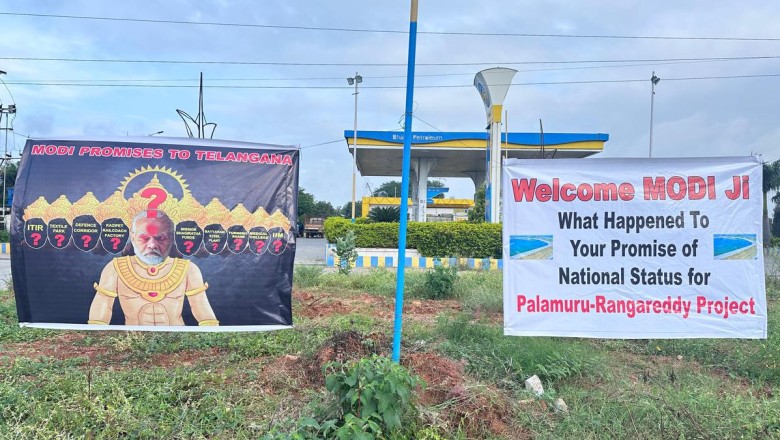Introduction
Prime Minister Narendra Modi’s visit to Hyderabad was marked by the unexpected appearance of posters critical of his government and policies across the city. The presence of these posters, expressing dissent and criticism, highlights the role of freedom of expression in a democratic society. This article delves into the incident, its implications for democratic discourse, and the broader context of political dissent in India.

The Emergence of Critical Posters
As Prime Minister Modi’s arrived in Hyderabad for an official visit, several posters criticizing his government and policies were conspicuously displayed in various parts of the city. These posters carried slogans and messages critical of the government’s handling of various issues, including economic challenges, healthcare, and political matters.
Freedom of Expression in a Democracy
The appearance of these posters serves as a reminder of the essential role played by freedom of expression in a democratic society. In a vibrant democracy like India, individuals and groups have the right to express their opinions, even when they are critical of the government and its leaders. This fundamental right is enshrined in the Constitution of India and is crucial for fostering open and robust public discourse.
The Role of Political Dissent
Political dissent and criticism are inherent aspects of any democratic society. They serve as checks and balances on the actions of the government, allowing citizens to hold their leaders accountable and demand transparency and accountability. In a diverse and pluralistic nation like India, differing viewpoints and criticism are integral to a healthy democracy.
Prime Minister Modi’s Stance
Prime Minister Modi, known for his responsive approach to public sentiment, has acknowledged the presence of dissenting voices and has previously expressed the importance of constructive criticism. During his tenure, he has often encouraged public participation in governance and policy formulation through initiatives like “Mann Ki Baat” and “MyGov.” This openness to feedback is consistent with democratic principles and fosters a sense of public engagement.
Ensuring Peaceful Expression
While the right to freedom of expression is vital, it must be exercised responsibly and peacefully. Law enforcement authorities in Hyderabad have a duty to ensure that public displays of dissent remain non-violent and do not disrupt public order. Simultaneously, citizens have a responsibility to engage in constructive dialogue and peaceful protests when expressing their grievances.
Conclusion
The appearance of critical posters during Prime Minister Modi’s visit to Hyderabad underscores the significance of freedom of expression in a democratic society. Political dissent and criticism are not only permissible but also crucial for fostering accountability and transparency in governance. As India continues to evolve as a democratic nation, the respectful and responsible exercise of these rights will remain pivotal in shaping the nation’s political discourse and policy direction.